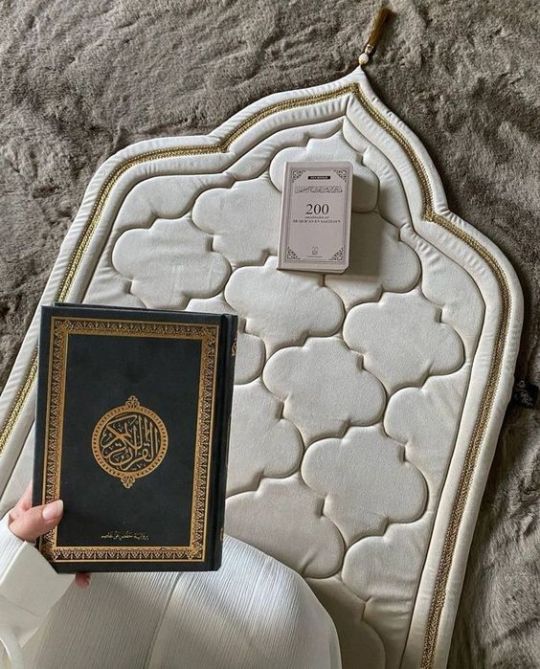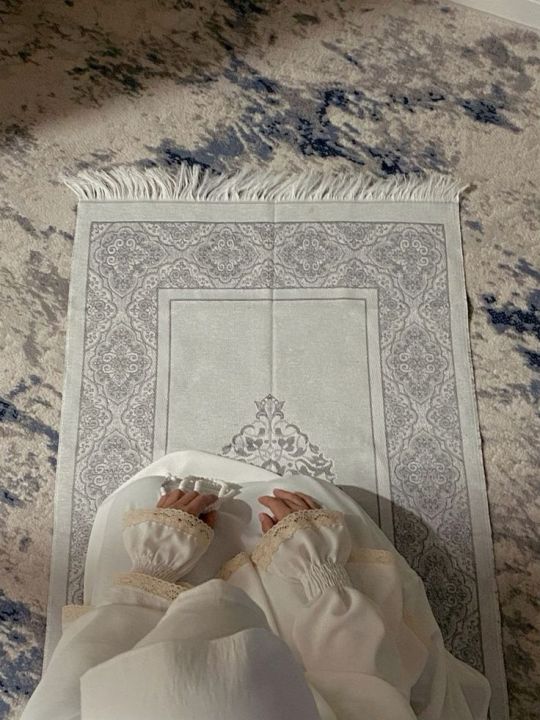#convert islam'
Text
JAMI’at-TIRMIDHI: The Book on Legal Punishments: Hadith 1834
Narrated 'Ubadah bin As-Samit:
"The Messenger of Allah (ﷺ) said: 'Take from me. For Allah has a way made for them : For the married person who commits adultery with a married person is one hundred lashes, then stoning. And for the virgin who commits adultery with a virgin is one hundred lashes and banishment for a year."
Reference: Jami` at-Tirmidhi 1434
In-book reference: Book 17, Hadith 14
English translation : Vol. 3, Book 15, Hadith 1434
#allah#god#islam#muslim#quran#revert#convert#convert islam'#revert islam#reverthelp#revert help#revert help team#help#islamhelp#converthelp#how to convert to islam#convert to islam#welcome to islam
6 notes
·
View notes
Text
The Life of The Prophet Muhammad(pbuh): Farewell Hajj and the Death of the Prophet (pbuh)
Last Visits of the Messenger of God
The time of the Messenger of God to leave this ephemeral world was approaching day by day and hour by hour.
One night at midnight, the Messenger of God suddenly went out of his house. Hazrat Aisha said, “O Messenger of God! Where are you going?”
He said, “I was ordered to ask forgiveness for the people from my family buried in the Cemetery of Baqi; I am going there.”
Abu Rafi and Abu Muwayhib, his freed slaves, were together with him. He stood among the graves in the Cemetery of Baqi for a long time, prayed and asked forgiveness for them. Then, he turned to Abu Muwayhib and told him that we would pass away to the eternal realm and see the face of God there:
“O Abu Muwayhib! I was left free to choose between the keys to the treasures of the world and the bounties of the hereafter; I chose the bounties of the hereafter!”
When Abu Muwayhib heard what he said, he was stupefied. He started to cry; all of his feelings, his spirit and his heart started to cry along with his eyes.
After this significant visit, the Messenger of God returned to his home.
Visiting the Martyrs of Uhud
The Prophet was also ordered to pray and ask forgiveness for the martyrs of Uhud, too. Therefore, he went to Uhud one day. He prayed for a long time for his distinguished Companions that had been martyred there.
After he returned from Uhud, he went to the Mosque. He ascended to the pulpit. He addressed the Muslims: “I will be the first one among you to reach the Pond of Kawthar and the first one to meet you there.” He added:
“I do not fear that you will return to polytheism after me; however, I fear that you will be tempted by the world, envy one another and kill one another; I fear that you will perish like the ones that perished before you as a result of this.”
In the House of Maymuna
The Messenger of God was in the house of Maymuna as it was her turn. Though he was ill, he paid great attention to the rights of his wives. His fever suddenly went up. All of his wives that he had invited were sorry and gloomy and they were standing around him.
The Prophet asked them, “Whose house shall I go tomorrow?”
He repeated this question several times. None of his wives answered.
The reason why he asked this question was the fact that he wanted to stay in Hazrat Aisha’s house when he was ill.
The wives of the Prophet soon realized this desire of the Prophet through their foresight and agreed that he should stay in Aisha’s house.
Thereupon, the Prophet left Maymuna’s house with the help of Hazrat Ali and Hazrat Abbas and went to Aisha’s house.
#islam#allah#revert#reverthelp#muslim#quran#god#convert#prayer#convert islam'#revert help team#islamic reminders#salah#converthelp#pray#welcome to islam#how to convert to islam'#new convert#new revert#new muslim#muhammad
4 notes
·
View notes
Text
Happy new year to all Queer Muslims.
#lgbtq community#lgbt pride#lgbtqia#lesbian#nonbinary#sapphic#lgbtq#queer#nonbinary lesbian#gay girls#islam#welcome to islam#convert to islam#islamophobia#islamic#hadith#quran#allah#muslim#queer nsft#queer artist#queer community#queer ns/fw#lgbt community#tiktok#sound on#tik toks#videos#trans pride#gay pride
701 notes
·
View notes
Text

#quotes#love#poem#poetry#literature#convert to islam#islamic world#islamicquotes#islam#muslim#prophet mohammed
3K notes
·
View notes
Text
dua's to recite after praying ♡



tasbih:
- subhanallah x33
- alhamdulillah x33
- Allah akbar x33
- followed by Laa ilaaha ill-Allah wahdahu laa shareeka lah, lahu’l-mulku wa lahu’l-hamd wa huwa ‘ala kulli shay’in qadeer (there is none worthy of worship except Allah alone with no partner. to Him belongs all sovereignty and praise, and He has power over everything)
it is narrated by Abu Huraira that if anyone extols Allah after every prayer thirty-three times, and praises Allah thirty-three times, and declares His Greatness thirty-three times, ninety-nine times in all, and says to complete a hundred: “There is no god but Allah, having no partner with Him, to Him belongs sovereignty and to Him is praise due, and He is Potent over everything,” his sins will be forgiven even if these are as abundant as the foam of the sea. (Sahih Muslim 597a)
Istighfar:
- astaghfirullah x3
Ayatul Kursi
Hadith: Allah's Messenger (ﷺ) said: "Whoever recites Ayat al-Kursi at the end of every obligatory prayer, nothing but death will prevent him from entering Paradise."
لَّآ إِلَٰهَ إِلَّآ أَنتَ سُبْحَٰنَكَ إِنِّى كُنتُ مِنَ ٱلظَّٰلِمِينَ
La ilaha illa anta subhanaka inni kuntu minaz-zalimin
(There is no God but You, Holy art Thou. I have indeed been of the wrongdoers).
لَا حَوْلَ وَلَا قُوَّةَ إِلَّا بِٱللَّٰهِ ٱلْعَلِيِّ ٱلْعَظِيمِ
Laa hawla wa la quwwata illa billah
(There is no strength of power except Allah)
اللَّهُمَّ إِنِّيْ أَسْأَلُكَ حُسْنَ الْخَاتِمَةِ
Allahumma inni asaluka husnul khatima
(O Allah, grant me a good and beautiful end to my life).
اللَّهُمَّ إِنِّي أَعُوذُ بِكَ مِنَ الْهَمِّ وَالْحَزَنِ، وَالْعَجْزِ وَالْكَسَلِ، وَالْبُخْلِ وَالْجُبْنِ، وَضَلَعِ الدَّيْنِ، وَغَلَبَةِ الرِّجَالِ
Allaahumma ‘innee ‘a’oothu bika minal-hammi walhazani, wal’ajzi walkasali, walbukhli waljubni, wa dhala’id-dayni wa ghalabatir-rijaal
(O Allah, I seek refuge in You from grief and sadness, from weakness and from laziness, from miserliness and from cowardice, from being overcome by debt and overpowered by men, i.e. others).
there are, of course, many others. these are just a select few to avoid overwhelm and to encourage. there is a hadith that says, if, after praying, one stays on their prayer mat and does not break their wudhu (ablution), the angels keep on asking for Allah's blessings and forgiveness for them. they say 'O Allah! Forgive him and be Merciful to him'. (Sahih al-Bukhari 659)
this is why it is important and good to remain in your place for a while after praying and remember Allah. these dua's are good to start with. may Allah make it easy for us all, Ameen
#muslim#islam#religion#dhikr#zikr#sabrgirl#ramadan#islamic#holy quran#quran#hadith#prayers#prayer#faith#muslims#allah#sunnah#convert to islam#welcome to islam
184 notes
·
View notes
Text

#convert to islam#islam#revert islam#freepalastine🇵🇸#islamophobia#muslim#sunni islam#welcome to islam#all women must veil!#burqa
156 notes
·
View notes
Text
👨👉👳♂️

One less christian one more Muslim

It is no coincidence that Muslims call Allah the ultimate planner. The English empire in previous centuries forcibly conquered distant Muslim lands as far as Pakistan and Afghanistan. Today the Muslims come and conquer them peacefully without weapons in their own homes. This 21-year-old Scot without being pressured by anyone defected to the army of Allah. He knelt and under the smiling gaze of his instructor repeats the words that bring him further and further away from Christianity and from the life he had until now. Instead of wearing the kilt and going to a bar for a whiskey, he chose the Muslim thobe and abstinence from alcohol. Yes, Allah is the great planner, and with his plans some are pleased and some others - his opponents - lose sleep.
#christian2muslim#convert to islam#islam#mashallah#muslim#religion traitors#new muslim#mnwo#arab superiority#muslim supremacy#shahada#shahadah#newmuslim#faithtraitor#onelesschristianonemoremuslim
83 notes
·
View notes
Text
Jewish-Muslim solidarity is knowing that you share terms and phrases, but respectively not knowing them in Arabic or Hebrew to compare.
#fromgoy2joy thoughts#jumblr#jewish#jewish convert#jewblr#jewish tumblr#jewish humor#muslim#islam#judaism#jewishness
67 notes
·
View notes
Text

Be content with everything you have, except for your knowledge and worship, don’t be content with where it is at the moment. Continue to strive everyday to increase both.
وَقُل رَبِّ زِدني عِلمًا
And say: My Lord, increase me in knowledge. (Surat TaHa:114).
#Alhamdulillah#islam#muslims#deen#dawah#dua#arabic#reminders#islamic content#islamic designs#qura#ayat#verses#arabs#muslim reverts#muslim convert#اسلاميات#اسلام#عربي#دين#دعوة#دعاء#تذكير#قران#ايات#مسلم#الحمدلله
189 notes
·
View notes
Text
The Life of The Prophet Muhammad(pbuh): The Conquest of Makkah and Afterwards
Governors and Zakah Collectors Are Sent To Tribes and Countries
(9th Year of the Migration, the month of Muharram)
Until that date, many tribes had accepted Islam and many lands were under the rule of the Islamic state. It was necessary to administer those countries and to tell the people there about their responsibilities and obligations.
To this end, the Messenger of God appointed some governors and zakah collectors in the month of Muharram of the 9th year of the migration and sent them to different countries.
The Messenger of God advised the governors and zakah collectors as follows:
“Forgive the mistakes of people; avoid collecting their best goods.”
Among the tribes that the Messenger of God sent governors and zakah collectors were San’a, one of the most beautiful cities of Yemen, Hadramut in Yemen, the tribes of Sulayms, Muzaynas, Juhaynas, Sons of Kilab and Sons of Ka’b.
Apart from administration, these governors also settled the issues among people and gave judgments based on Islamic decrees.
Zakah collectors informed people about zakah in the places that they went to and asked the rich people to give zakah.
Some tribes paid zakah readily. Others did not like it because they thought it was too heavy a burden at first; however, they started to pay zakah later.
DELEGATES COME TO MADINAH IN LARGE GROUPS
The conquest of Makkah was a very bright and honorable victory of Islam. With this conquest, the fierce struggle that lasted for years between the Messenger of God and the Qurayshi polytheists ended with the victory of Islam.
The tribes in Arabia observed this fierce struggle that lasted for years closely and carefully. At first, they decided to leave the Messenger of God alone with his struggle against the Qurayshis, his own tribe; they said, “Leave him alone with his tribe. If he defeats his tribe, it means he is telling the truth and he is a prophet.”
This fierce struggle, which was observed closely by the tribes around, ended with the victory of Islam and the defeat and destruction of the polytheism as a result of the conquest of Makkah.
There was only one thing left to do for them: To accept Islam as soon as possible.
They knew it very well that they would not be able to stop and eliminate this cause, which Makkan polytheists could not stop and eliminate despite their strength and enmity.
Therefore, after the conquest of Makkah, at the beginning of the 9th year of the Migration, the tribes around started to come to Makkah in large groups in order to become Muslims. For this reason, this year was named the “Year of Delegates”.
The Prophet welcomed all of those delegates and entertained them. There were people from all walks of life in those delegates. All of them admired the high ethics and virtues of the Prophet and the kind attitudes of his Companions; they returned to their land happily.
The Delegation of Sons of Tamim in Madinah
The Messenger of God sent Busr b. Sufyan, one of the Companions, to the tribe of Sons of Ka’b from Khuzaas in order to collect zakah from them.
Sons of Ka’b had put the animals to be given for zakah aside. However, the tribe of Tamim, living in the same place, objected to giving those animals as zakah; they even drew their swords implying that they would kill Busr. Thereupon, Busr returned to Madinah and told the Messenger of God what had happened. The Messenger of God sent Uyayna b. Hisn with about fifty Bedouin cavalrymen to Sons of Tamim. Uyayna b. Hisn attacked Sons of Tamim suddenly and returned to Madinah with lots of booty, and captives including eleven men, twenty women and about thirty children.
A short time after the return of Uyayna b. Hisn to Madinah, a delegate from Sons of Tamim, who had objected to paying zakah, went to the presence of the Prophet. There were famous orators and poets among them. Their aim was to take the captives back.
The Prophet asked them, “What do you want”
They said, “We are from the tribe of Tamim. We brought our orators and poets to compete with yours by reciting poems and boasting.”
The Prophet smiled slightly and said, “I was not appointed to recite poems or boast; I cannot do it. However, do your best and we will listen to you.”
Thereupon, Utarid, an orator of the tribe of Sons of Tamim, stood up and started to praise his tribe. Then, he said, “Who will compete me and praise his tribe like me?”
After the orator of Sons of Tamim finished his speech and sat, the Messenger of God said to Thabit b. Qays, “Stand up and reply his speech.”
Thabit stood up. Though he had not made any preparations, he recited such an eloquent and effective sermon regarding the majesty of God Almighty and the virtues of the Messenger of God that Sons of Tamim were astonished. Thabit spoke as follows:
“…
Praise be to God, who created the skies ant the earth and who rules them.
There exists nothing that is not the work of His grant and generosity.
Our victories and rule over countries are also the work of His power.
He chose the best man and sent him as a prophet; he has the noblest ancestors paternally and maternally; he always tells the truth. God sent His book to him and made him the most trustworthy person; He made the Prophet the most distinguished person in the world.
“…”
After this speech, it was time for the poets.
First, one of the poets of Sons of Tamim stood up and recited a poem boasting himself.
As soon as the man finished his poet, the Messenger of God said to Hassan b. Thabit, his poet, “Stand up O Hassan! Reply this man.”[8] He added, “God will definitely support him with Gabriel when he defends His Messenger.”
Hassan, who undertook the honor of defending the Messenger of God, stood up enthusiastically. He recited a long poem with the same meter and rhyme as the man’s poem. He expressed the exceptional beauty, highness and virtue of Islam concisely and clearly.
The fact that the Muslim orator and poet presented a much better speech and poem than those of Sons of Tamim rejoiced both the Prophet and the Companions who were there. On the other hand, the delegates of Tamim kept silent when they saw that the orator and poet of Muslims were superior. Aqra b. Habis, one of the notables of Tamim, could not help saying,
“I swear by God that this person (the Prophet) is always helped by the unseen. He will definitely be successful. He becomes superior to everybody regarding everything. His orator is superior to our orator and his poet is superior to our poet. Their voice is more sonorous than ours.”
Then, Aqra b. Habis approached the Messenger of God and became a Muslim by uttering kalima ash-shahadah. The other members of Sons of Tamim followed him and embraced Islam, too.
Thereupon, the Messenger of God gave a gift to each member of the delegation and returned the captives to them.
The Delegation of Sons of Asad in Madinah
It was the month of Muharram in the 9th year of the Migration.
One of the delegations that came to Madinah was the delegation of Sons of Asad, which consisted of ten people. After telling the Prophet that they became Muslims, they said, “O Messenger of God! We came here on our own accord though everybody was having difficulty due to famine and drought. We became Muslims without fighting you unlike the other tribes.”
With that statement, they wanted to say that the Prophet needed to be grateful to them because they became Muslims; they expected to receive a lot of things due to this gratification. It was certain that they assumed such an attitude because they had just become Muslims and they had not learned about the vast spirit of Islam yet.
As a matter of fact, by becoming Muslims, they helped themselves only. Thus, they protected their eternal lives from being destroyed. They did not make the Messenger of God gain any profits by becoming Muslims. Therefore, their attitude was groundless and it was not in accordance with the spirit of Islam. The verse that was sent down regarding the issue expressed this fact:
“They impress on thee as favor that they have embraced Islam. Say “Count not your Islam as a favor upon me: nay, God has conferred a favor upon you that He has guided you to the Faith, if ye be true and sincere.”
The duty of a believer is to thank and praise God for attaining the greatest and highest truth, which is belief, in the universe. He should not expect or even think about anything material or spiritual gains in return for his belief. The reward to be given for attaining belief and being honored with Islam is in the hereafter. Only there will God Almighty give this unique reward to us through his bounties and generosity.
The rewards for the services regarding belief and the Quran are also otherworldly; they will be given in the hereafter. Therefore, a Muslim who has belief, has embraced Islam and serves belief and the Quran should not expect any worldly rewards or interests for his service. If he expects such things and he wants it through his heart, he will be regarded to have lost his sincerity in the religion. Losing sincerity eliminates the acceptance of worshipping; God forbid, such a person may go bankrupt spiritually. However, if a person who serves belief and the Quran is given a material reward though he does not expect or want it through his heart, he should regard it as a grant of God Almighty; he should not feel gratitude to the people who give it; besides, he should not have the feeling, “This material interest and money is given to me because of my service to the religion.”
THE IDOL-HOUSE OF THE TRIBE OF TAYY IS DEMOLISHED
The tribe of Tayy, was the tribe of Hatam at-Tai, who was famous for his generosity. They lived in Yemen.
In the 8th year of the Migration, Hatam at-Tai died and his son, Adiyy, became the leader of the tribe.
After the conquest of Makkah, almost all of the idol-houses in Arabia were demolished and the idols were destroyed; however, the idol-house of this tribe was still existent and the idol called Fuls (Fals) was not destroyed.
The Messenger of God sent Hazrat Ali to the tribe of Tayy with about one hundred and fifty Companions to demolish Fuls in the month of Rabiul-Akhir in the 9th year of the Migration.
Hazrat Ali arrived at the land of the tribe of Tayy with the mujahids. Sons of Tayy resisted the mujahids. There was a clash between them. The enemy suffered a lot of casualties. The Muslims defeated them and obtained a lot of captives and booty. The idol-house of Sons of Tayy was destroyed completely; Fuls was broken into pieces and burned down.
Adiyy b. Hatam, the leader of the tribe, had been informed about the mujahids who were coming there; so, he ran away to the direction of Syria; he was not captured. However, Saffana, the daughter of Adiyy, was among the captives.
Saffana’s Request
Hazrat Ali fulfilled his duty and returned to Madinah with the captives and booty.
Saffana, who was among the captives, was put in a room near the door of Masjid an-Nabawi. She was a clever and solemn woman. One day, while the Messenger of God was passing by that room, Saffana stood up and said, “O Messenger of God! My father died and my brother escaped. I have nothing to give to free myself from captivity. I take refuge in your forgiveness, mercy and compassion for my freedom.”
When the Messenger of God asked her who she was, Saffana said,
“O Messenger of God! I am the daughter of Hatam at-Tai, who protected families, freed slaves, fed the hungry, clothed the naked, entertained guests, gave people food and greeted people.”
The Messenger of God became glad that Saffana introduced herself like that and said, “O woman! What you have listed are attributes of believers. I wish your father had become a Muslim and we had mentioned his name with mercy.”
With those words, the Prophet stated an important truth. The fact that “not all attributes of an unbeliever are unbeliever attributes”. Yes, Hatam at-Tai was not a Muslim; and he died before he became a Muslim. However, the attributes mentioned above are attributes of believers. The Messenger of God appreciated the Muslim attributes of Hatam by saying so. Apart from appreciating them, the Prophet freed Saffana. The Messenger of God, who showed compassion, mercy and tolerance to those who were worthy of them, granted a lot of things to Saffana. He gave her some clothes and allowance; then, he sent her to Damascus with a trustworthy caravan to her brother.
When Saffana arrived in Damascus, she found her brother. She told him about the kind attitudes of the Prophet. The kind attitude of the Prophet to his sister caused some movements in his heart. He asked her, “What is your opinion about this man”. Saffana, who saw the blessed face of the Messenger of God only once and who received kind attitudes only once from him, said without hesitation, “I advise you to go to him and be subject to him.”
When Adiyy thought for a while, his sister said,
“Why are you thinking so much? If he is a prophet, you will obey him and attain great goodness and virtues. If he is a king, you will not lose anything; your sultanate in Yemen will belong to you again. You will not be despised.”
Adiyy regarded the advice of his sister appropriate; he arrived in Madinah at once and went to the presence of the Prophet.
The Messenger of God wanted to host Adiyy, who was famous like his father, in his house.
They left the mosque to go to the house of the Prophet. Meanwhile, a woman stopped them and talked to the Prophet about her need for a long time. The Messenger of God listened to her patiently and without feeling disturbed. When Adiyy saw the nice and kind attitude of the Prophet to the old woman, he said to himself, “I swear by God he is not a king.” There was only one possibility left: “Then, he is a prophet.”
They reached the house of the Prophet. The Prophet wanted Adiyy to sit on a leather mattress. However, he did not want to sit on it. He said the Prophet was worthy of sitting on it. However, the Prophet did not sit on it and insisted that Adiyy sit on it. Thereupon, Adiyy sat on the leather mattress. The Messenger of God sat on the ground opposite his valuable guest. This attitude of the Prophet, which showed his modesty and his kindness toward his guest, softened Adiyy’s heart some more and made him approach belief a bit more.
Then, the Messenger of God invited him to become a Muslim. He repeated it three times. However, Adiyy did not give a positive answer. He said, “I am a Christian.”
Thereupon, the Messenger of God said,
“O Adiyy! Maybe you do not want to become a Muslim because some people say, ‘Weak, poor and helpless people enter his religion.’ By God, one day, Muslims will have so much wealth that they will not be able to find anybody that asks for money or goods from them.
You may also have thought, ‘The number of the Muslims is few and the number of their enemies is a lot.’ You might not want to become a Muslim because of that thought.
Do you know Hiyara? This religion will provide such safety and security that a woman will come from Hiyara to the Kaaba on her own for circumambulation without fearing anything but God.”
This talk opened the door of Adiyy’s heart and he embraced Islam.
Adiyy b. Hatam, who was one of the notables of the Companions was this person.
#allah#god#islam#muslim#quran#revert#convert#convert islam'#revert islam#reverthelp#revert help#revert help team#help#islamhelp#converthelp#how to convert to islam#convert to islam#welcome to islam
3 notes
·
View notes
Text

#lgbtq community#lgbt pride#lgbtqia#lesbian#nonbinary#lgbtq#queer#sapphic#nonbinary lesbian#gay girls#islamic#islam#convert to islam#quran#muslim#welcome to islam#revert islam#duaa#hadith#christianity#christian living#christian broadcasting network#christian doctrine#new testament#jesus#bible#christian faith#psalms#christians
249 notes
·
View notes
Text

304 notes
·
View notes
Text
#muslim supremacy#islamification#arab superiority#veiling#jilbab#headscarf#hijabi#hijabstyle#hijabfashion#hijabers#hijab#hijab model#hijab girl#niqab#niqabi#niqabstyle#women niqab#convert to islam#islam4europe#islamization#revert to islam
202 notes
·
View notes
Text

#convert to islam#islam#islamophobia#muslim#revert islam#sunni islam#welcome to islam#freepalastine🇵🇸#burqa#fatwa#all women must veil!#sharia law
167 notes
·
View notes
Text
Sahih Bukhari 1302
Narrated Anas (RA):
The Prophet ﷺ said, "The real patience is at the first stroke of a calamity."
#islam#share islam#muslim#convert to islam#islamquotes#hadith sahih#quran#islamic reminders#revert islam#hadith
219 notes
·
View notes
